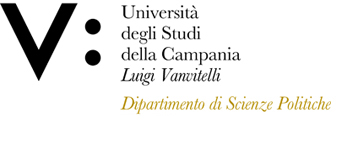Alberto INCOLLINGO
Insegnamento di MANAGEMENT DELLE AZIENDE TURISTICHE
Corso di laurea magistrale in PROGETTAZIONE E GESTIONE DEI SISTEMI TURISTICI
SSD: SECS-P/07
CFU: 6,00
ORE PER UNITÀ DIDATTICA: 36,00
Periodo di Erogazione: Secondo Semestre
Italiano
| Lingua di insegnamento | ITALIANO |
| Contenuti | Il Corso trasferisce conoscenze e fornisce strumenti per comprendere e analizzare il fenomeno aziendale nel settore turistico. In particolare, il corso sviluppa i seguenti argomenti |
| Testi di riferimento | La gestione delle aziende turistiche, M. Confalonieri, Giappichelli, 2021. |
| Obiettivi formativi | 1. Conoscenza e capacità di comprensione. |
| Prerequisiti | Conoscenze di base dell’economia aziendale |
| Metodologie didattiche | Le attività didattiche sono costituite dalla presentazione di argomenti teorici, esercitazioni individuali e di gruppo su aspetti applicativi e discussioni di casi aziendali. Le metodologie utilizzate consistono in lezioni frontali; le esercitazioni e i casi aziendali sono supportati anche da materiale tratto dalla realtà delle aziende del settore turistico. |
| Metodi di valutazione | La valutazione dello studente prevede una prova scritta di carattere sia teorico, sia applicativo, espressa in trentesimi. |
| Altre informazioni | Le lezioni frontali sono supportate da slides e altro materiale a cura del docente su specifici argomenti. |
| Programma del corso | LA GESTIONE DELLE AZIENDE QUALE SISTEMA DI OPERAZIONI: UN QUADRO CONCETTUALE (0,5 CFU) |
English
| Teaching language | Italian |
| Contents | The course transfers knowledge and provides tools to understand and analyze the corporate phenomenon in all its manifestations, with particular reference to tourism sector. In particular, the course will address the following topics: |
| Textbook and course materials | La gestione delle aziende turistiche, M. Confalonieri, Giappichelli, 2021. |
| Course objectives | 1. Knowledge and understanding |
| Prerequisites | Basic knowledge of business economics |
| Teaching methods | The activities consist of the presentation of theoretical topics through lectures, individual and group exercises on application aspects and discussions of business cases with exercises and business cases also supported by material taken from the reality of the tourism sector. |
| Evaluation methods | The assessment includes a written test expressed in thirtieths. The written test, is structured in open questions. It is considered passed in the event of a positive response to 60% of the submitted tests/problems. |
| Other information | Lectures are supported by slides and other material by the teacher on specific topics. |
| Course Syllabus | COMPANY MANAGEMENT AS A SYSTEM OF OPERATIONS: A CONCEPTUAL FRAMEWORK (0,5 CFU) |








